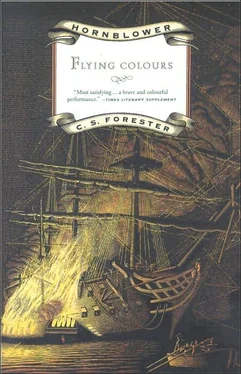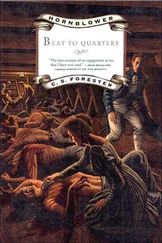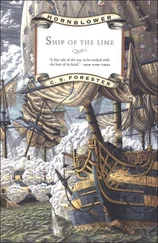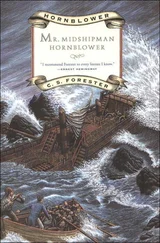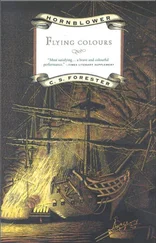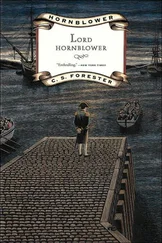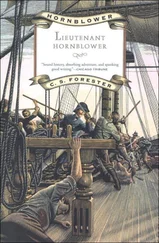Cecil Forester - Flying Colours
Здесь есть возможность читать онлайн «Cecil Forester - Flying Colours» весь текст электронной книги совершенно бесплатно (целиком полную версию без сокращений). В некоторых случаях можно слушать аудио, скачать через торрент в формате fb2 и присутствует краткое содержание. Год выпуска: 1989, ISBN: 1989, Издательство: Back Bay Books, Жанр: Исторические приключения, Путешествия и география, Морские приключения, на английском языке. Описание произведения, (предисловие) а так же отзывы посетителей доступны на портале библиотеки ЛибКат.
- Название:Flying Colours
- Автор:
- Издательство:Back Bay Books
- Жанр:
- Год:1989
- ISBN:0316289396
- Рейтинг книги:5 / 5. Голосов: 1
-
Избранное:Добавить в избранное
- Отзывы:
-
Ваша оценка:
- 100
- 1
- 2
- 3
- 4
- 5
Flying Colours: краткое содержание, описание и аннотация
Предлагаем к чтению аннотацию, описание, краткое содержание или предисловие (зависит от того, что написал сам автор книги «Flying Colours»). Если вы не нашли необходимую информацию о книге — напишите в комментариях, мы постараемся отыскать её.
Flying Colours — читать онлайн бесплатно полную книгу (весь текст) целиком
Ниже представлен текст книги, разбитый по страницам. Система сохранения места последней прочитанной страницы, позволяет с удобством читать онлайн бесплатно книгу «Flying Colours», без необходимости каждый раз заново искать на чём Вы остановились. Поставьте закладку, и сможете в любой момент перейти на страницу, на которой закончили чтение.
Интервал:
Закладка:
They passed under a couple of bridges, with the tide running strongly, and left the huge mass of the ducal château to starboard; Hornblower forced himself to sit with careless ease in the boat, as though neither courting nor avoiding observation; the Legion of Honour clinked as it swung upon his breast. A side glance at Bush suddenly gave him enormous comfort and reassurance, for Bush was sitting with a masklike immobility of countenance which told Hornblower that he was nervous too. Bush could go into action and face an enemy’s broadside with an honest indifference to danger, but this present situation was trying his nerves severely, sitting watched by a thousand French eyes, and having to rely upon mere inactivity to save himself from death or imprisonment. The sight was like a tonic to Hornblower. His cares dropped from him, and he knew the joy and thrill of reckless bravery.
Beyond the next bridge the maritime port began. Here first were the fishing boats—Hornblower looked keenly at them, for he had in mind to steal one of them. His experience under Pellew in the blockading squadron years ago was serving him in good stead now, for he knew the ways of those fishing boats. They were accustomed to ply their trade among the islands of the Breton coast, catching the pilchards which the French persisted in calling ‘sardines’, and bringing their catch up the estuary to sell in the market at Nantes. He and Bush and Brown between them could handle one of those boats with ease, and they were seaworthy enough to take them safely out to the blockading squadron, or to England if necessary. He was practically certain that he would decide upon such a plan, so that as they rowed by he sharply ordered Brown to pull more slowly, and he turned all his attention upon them.
Below the fishing boats two American ships were lying against the quay, the Stars and Stripes fluttering jauntily in the gentle wind. His attention was caught by a dreary clanking of chains—the ships were being emptied of their cargoes by gangs of prisoners, each man staggering bent double under a bag of grain. That was interesting. Hornblower looked again. The chain gangs were under the charge of soldiers—Hornblower could see the shakos and the flash of the musket barrels—which gave him an insight into who the poor devils might be. They were military criminals, deserters, men caught sleeping at their posts, men who had disobeyed an order, all the unfortunates of the armies Bonaparte maintained in every corner of Europe. Their sentences condemned them to ‘the galleys’ and as the French Navy no longer used galleys in which they could be forced to tug at the oars, they were now employed in all the hard labour of the ports; twice as lieutenant in Pellew’s Indefatigable Hornblower had seen picked up small parties of desperate men who had escaped from Nantes in much the same fashion as he himself proposed now to do.
And then against the quay below the American ships they saw something else, something which caused them to stiffen in their seats. The tricolour here was hoisted above a tattered blue ensign, flaunting a petty triumph.
“ Witch of Endor, ten-gun cutter,” said Bush hoarsely. “A French frigate caught her on a lee shore off Noirmoutier last year. By God, isn’t it what you’d expect of the French? It’s eleven months ago and they’re still wearing French colours over British.”
She was a lovely little ship; even from where they were they could see the perfection of her lines—speed and seaworthiness were written all over her.
“The Frogs don’t seem to have over-sparred her the way you’d expect ‘em to,” commented Bush.
She was ready for sea, and their expert eyes could estimate the area of the furled mainsail and jib. The high graceful mast nodded to them, almost imperceptibly, as the cutter rocked minutely beside the quay. It was as if a prisoner were appealing to them for aid, and the flapping colours, tricolour over blue ensign, told a tragic story. In a sudden rush of impulse Hornblower put the helm over.
“Lay us alongside the quay, he said to Brown.
A few strokes took them there; the tide had turned some time ago, and they headed against the flood. Brown caught a ring and made the painter fast, and first Hornblower, nimbly, and then Bush, with difficulty, mounted the stone steps to the top of the quay.
“Suivez-nous,” said Hornblower to Brown, remembering at the last moment to speak French.
Hornblower forced himself to hold up his head and walk with a swagger; the pistols in his side pockets bumped reassuringly against his hips, and his sword tapped against his thigh. Bush walked beside him, his wooden leg thumping with measured stride on the stone quay. A passing group of soldiers saluted the smart uniform, and Hornblower returned the salute nonchalantly, amazed at his new coolness. His heart was beating fast, but ecstatically he knew he was not afraid. It was worth running this risk to experience this feeling of mad bravery.
They stopped and looked at the Witch of Endor against the quay. Her decks were not of the dazzling whiteness upon which an English first lieutenant would have insisted, and there was a slovenliness about her standing rigging which was heartbreaking to contemplate. A couple of men were moving lackadaisically about the deck under the supervision of a third.
“Anchor watch,” muttered Bush. “Two hands and a master’s mate.”
He spoke without moving his lips, like a naughty boy in school, lest some onlooker should read his words and realize that he was not speaking French.
“Everyone else on shore, the lubbers,” went on Bush.
Hornblower stood on the quay, the tiny breeze blowing round his ears, soldiers and sailors and civilians walking by, the bustle of the unloading of the American ships noisy in the distance. Bush’s thoughts were following on the heels of his own. Bush was aware of the temptation Hornblower was feeling, to steal the Witch of Endor and to sail her to England—Bush would never have thought of it himself, but years of service under his captain made him receptive of ideas, however fantastic.
Fantastic was the right word. Those big cutters carried a crew of sixty men, and the gear and tackle were planned accordingly. Three men—one a cripple—could not even hope to be able to hoist the big mainsail, although it was just possible that the three of them might handle her under sail in the open sea in fair weather. It was that possibility which had given rise to the train of thought, but on the other hand there was all the tricky estuary of the Loire between them and the sea; and the French, Hornblower knew, had removed the buoys and navigation marks for fear of an English raid. Unpiloted they could never hope to find their way through thirty-five miles of shoals without going aground, and besides, there were batteries at Paimbœuf and Saint Nazaire to prohibit unauthorized entrance and exit. The thing was impossible—it was sheer sentimentality to think of it, he told himself, suddenly self-critical again for a moment.
He turned away and strolled up towards the American ships, and watched with interest the wretched chain gangs staggering along the gang planks with their loads of grain. The sight of their misery sickened him; so did the bullying sergeants who strutted about in charge of them. Here, if anywhere, he told himself, was to be found the nucleus of that rising against Bonaparte which everyone was expecting. All that was needed was a desperate leader—that would be something worth reporting to the Government when he reached home. Farther down the river yet another ship was coming up to the port, her topsails black against the setting sun, as, with the flood behind her, she held her course close hauled to the faint southerly breeze. She was flying the Stars and Stripes—American again. Hornblower experienced the same feeling of exasperated impotence which he had known in the old days of his service under Pellew. What was the use of blockading a coast, and enduring all the hardships and perils of that service, if neutral vessels could sail in and out with impunity? Their cargoes of wheat were officially noncontraband, but wheat was of as vital importance to Bonaparte as ever was hemp, or pitch, or any other item on the contraband list—the more wheat he could import, the more men he could draft into his armies. Hornblower found himself drifting into the eternal debate as to whether America, when eventually she became weary of the indignities of neutrality, would turn her arms against England or France—she had actually been at war with France for a short time already, and it was much to her interest to help pull down the imperial despotism, but it was doubtful whether she would be able to resist the temptation to twist the British lion’s tail.
Читать дальшеИнтервал:
Закладка:
Похожие книги на «Flying Colours»
Представляем Вашему вниманию похожие книги на «Flying Colours» списком для выбора. Мы отобрали схожую по названию и смыслу литературу в надежде предоставить читателям больше вариантов отыскать новые, интересные, ещё непрочитанные произведения.
Обсуждение, отзывы о книге «Flying Colours» и просто собственные мнения читателей. Оставьте ваши комментарии, напишите, что Вы думаете о произведении, его смысле или главных героях. Укажите что конкретно понравилось, а что нет, и почему Вы так считаете.
